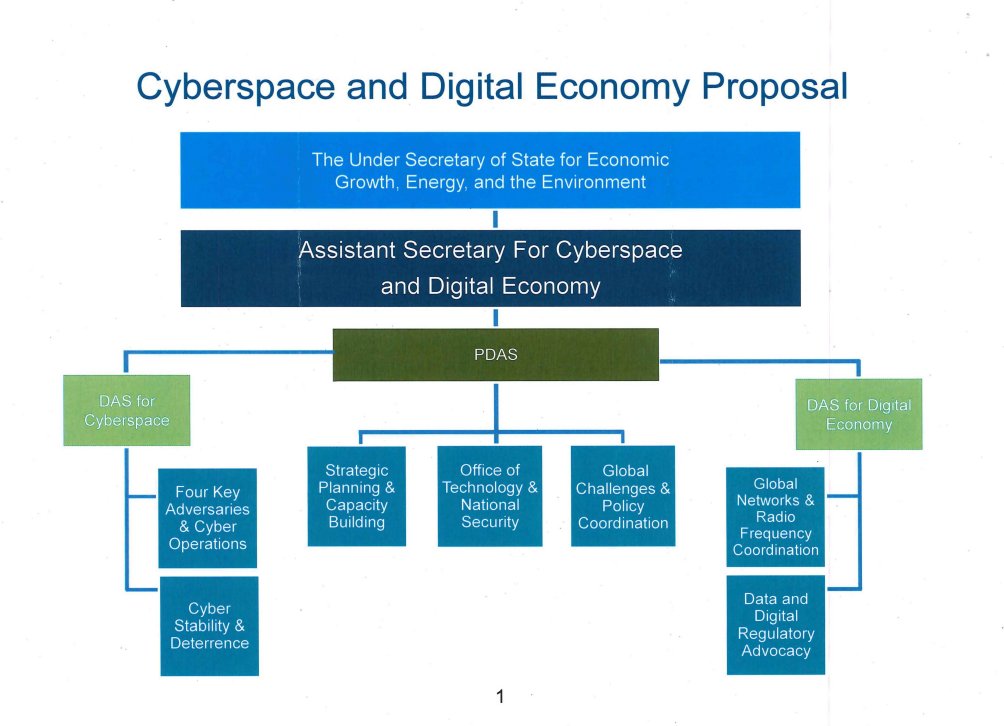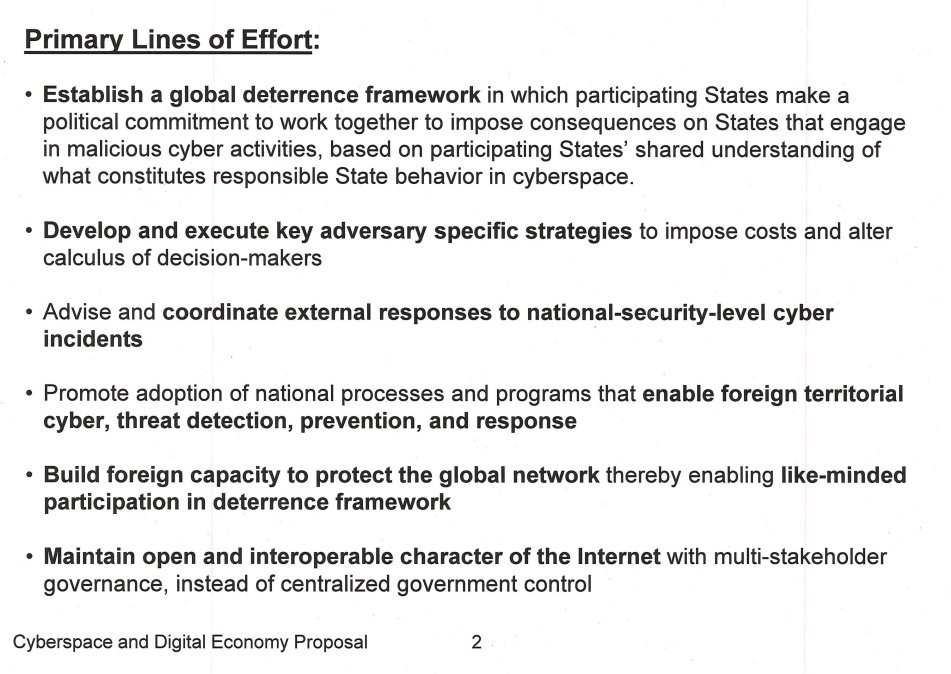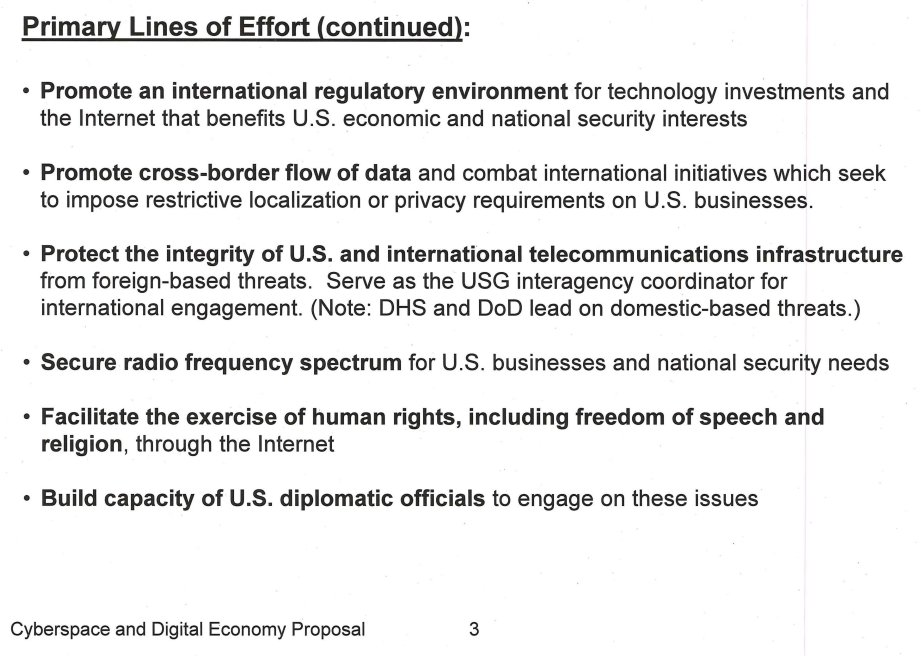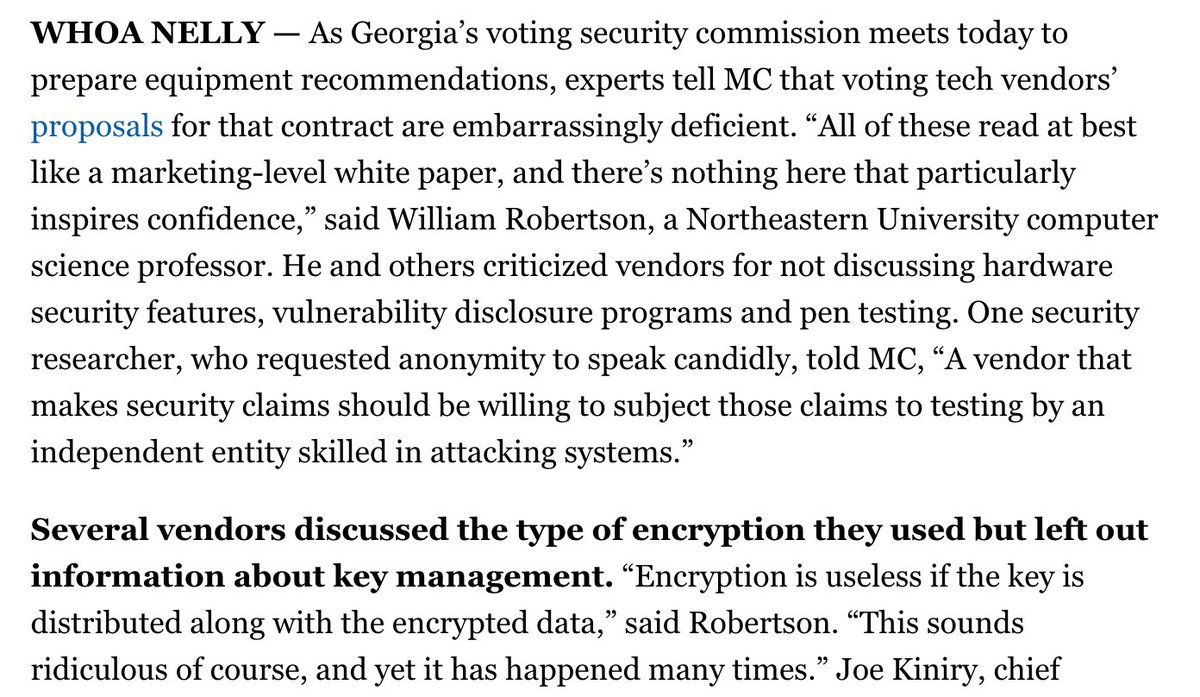Former top cyber diplomat @C_Painter will testify and discuss his concerns about the current State Department cyber policy structure: docs.house.gov/meetings/FA/FA…
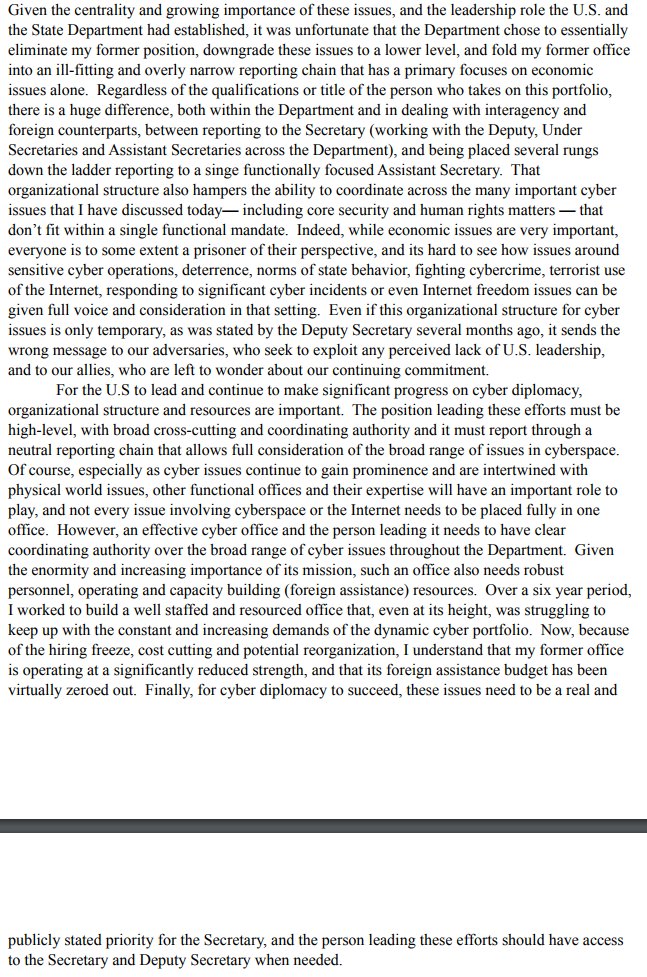
Painter noted that individual companies are often unwilling to raise the issue with Beijing because of market access fears.
Painter: "Seeming to step back from the world stage empowers our adversaries to try to exploit that.”
Painter, speaking generally about deterrence: “If we don’t take any action, that itself sets a norm of inaction.”
Royce shuts Rohrabacher down and moves on to the next lawmaker.
Very few lawmakers present for this hearing.
Painter: “Frankly, there was, maybe, lack of understanding of the importance of this issue.”
Royce says it's a good first step but not enough.
He's trying to get them to give him ammo to criticize Hillary Clinton again.
They won't bite.
Painter: "Sir, I do not accept that."
"Shame on you!" he yells at the witnesses.
Painter says no. Cyber is more than just an economic issue.
Painter: “We had a lot of momentum going” when Tillerson made his decision. “I don’t understand why we did that.”
Painter: “To some extent, the jury’s out.” Most researchers say IP theft “diminished substantially” after the deal.
One of Sulmeyer's suggestions: Threats to the election should be at the top of the intelligence community’s list of collection priorities.
Big takeaways for me:
(1) Lawmakers don't understand the details of cyber diplomacy well enough to ask good questions.
(2) State Dept hasn't appeased its critics just by creating a new cyber bureau.
